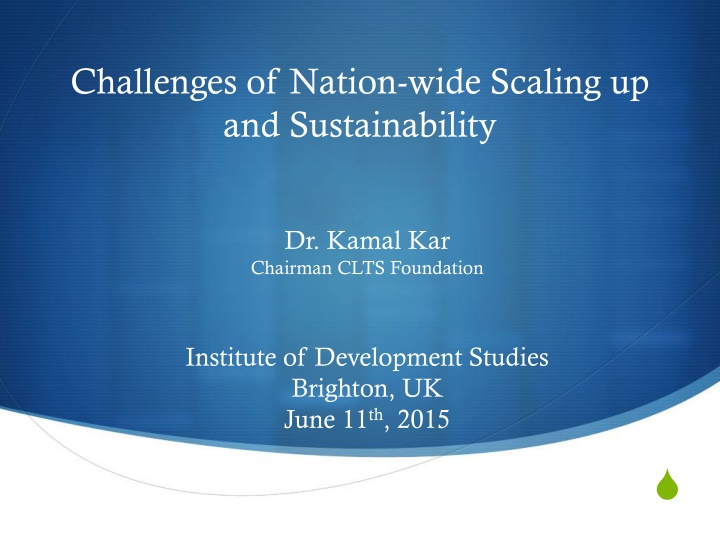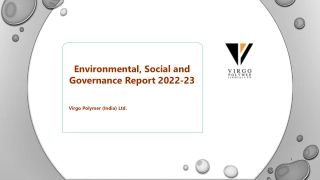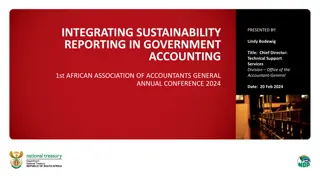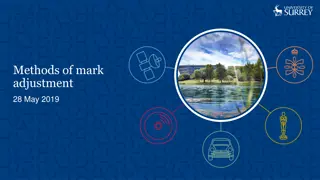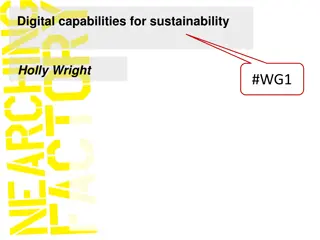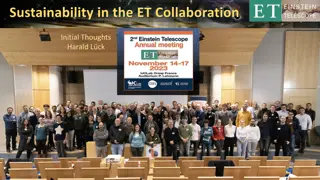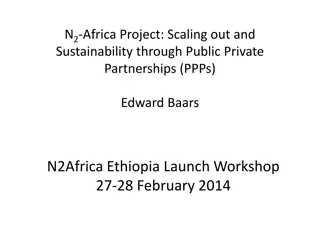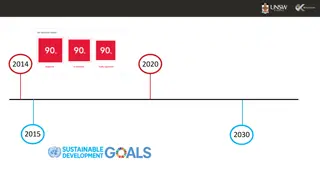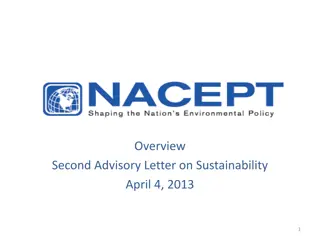Challenges of Nation-wide Scaling up and Sustainability
Dr. Kamal Kar discusses the challenges faced in scaling up Community-Led Total Sanitation (CLTS) initiatives in Africa, focusing on the transition from ODF villages to ODF districts, regions, and nations. The struggle for policy shift towards community empowerment, behavioral change, and effective coordination is highlighted.
Download Presentation

Please find below an Image/Link to download the presentation.
The content on the website is provided AS IS for your information and personal use only. It may not be sold, licensed, or shared on other websites without obtaining consent from the author.If you encounter any issues during the download, it is possible that the publisher has removed the file from their server.
You are allowed to download the files provided on this website for personal or commercial use, subject to the condition that they are used lawfully. All files are the property of their respective owners.
The content on the website is provided AS IS for your information and personal use only. It may not be sold, licensed, or shared on other websites without obtaining consent from the author.
E N D
Presentation Transcript
Challenges of Nation-wide Scaling up and Sustainability Dr. Kamal Kar Chairman CLTS Foundation Institute of Development Studies Brighton, UK June 11th, 2015
MDG and CLTS in Africa CLTS was introduced in Africa in 2007 First in Eastern and Southern Africa (Tanzania, Ethiopia Zambia, Kenya) Later in Western and Central Africa ( Sierra Leone, Liberia, Mali, Chad, Ghana, Nigeria) Competition amongst the countries and organizations in a country in achieving more of ODF villages Initially Ethiopia, Kenya, Malawi, Sierra Leone and others did very well
MDG and CLTS in Africa Institutionalization and scaling up became more challenging than introduction From a few hundred ODF villages to ODF districts, ODF regions and ODF nation demanded involvement of another set of actors, triggering and advocacy at a different level Community s success on CLTS established and reemphasized that without collective behaviour change improvement in sanitation was not possible. This challenged the national level policy and decision makers who believed in top-down, prescriptive and subsidized/free toilet construction
Challenges Governments used to subsidy driven approach resisted making the policy shift towards community empowerment Without policy and a nation wide strategy with roadmap and adequate resources, institutionalisation and large-scale scaling up was not possible Mandate for sanitation/WASH rested with ministries focused on infrastructure creation rather than measuring health outcomes Focus on toilet construction continued
Challenges While some nations realized the need for behaviour change for sustained health outcomes, changing the mind-set of some donors to modify funding guidelines posed a new challenge Weak inter and intra-institutional coordination and lack of functional linkages between organisations and departments blocked effective convergence of efforts.
Innovative scaling up strategies Sanitation led by Ministry of Health/Public Health focusing on health outcomes rather than infrastructure creation Kenya, Ethiopia, Indonesia Clear national sanitation strategy with ODF target and roadmap Achieved ODF communes, sub-districts, districts Successfully created a healthy competition amongst the local governments within the country which triggered national ODF campaign. E.g. Madagascar, Kenya
Innovative scaling up strategies Transforming mindsets of donor agencies Countries like Ghana (WB), Chad (EU) succeeded in transforming major donor s funding mechanism and terms as decided by the country themselves rather than the outsiders
Innovative scaling up strategies Emergence of CLTS champions at highest leadership level As the success of communities attracted the attention of local government, the national level political leadership became interested to show case the success at the country level and emerge as champion at the region. E.g. Malawi, Madagascar, Zambia
Innovative scaling up strategies Establishing appropriate enabling environment helped in converging the efforts of multiple actors towards realizing the national goal rather than disconnected and piecemeal success on CLTS
Innovative scaling up strategies Need for abolishing the practice of OD is being stressed by set of new champions emerged at the highest levels of national political leadership ( President, Prime Minister of Madagascar, Timor Leste, Kiribati, Ministers of Ghana, Cote De Ivory, Malawi, Kenya, etc.) Established organic scaling-up mechanisms Widening network with Natural leaders and Community Consultants
Innovative scaling up strategies Innovative funding mechanisms Emergence of new financing mechanisms like GSF
Persona l Attitud e and Behavi or Change Professi onal Instituti onal Policy Context Pre- CLTS Tools and Techniq ues triggering Essential Converg ence Inter- Institution al Coordinati on National Protocol/ Budget Enabling Environm ent Triggering Post Triggering Follow-up Post ODF actions 13
Can we ensure a better coordination than this? Institutional OD? 14
Honourable Mr. Elvis Afriya, Minister of Sports and Youth Affairs, Ghana (front row ;c entre) His Excellency Mr.Hery Rajaonarimampianina, President,Madagascar(4th from left) Honourable Mr. Roger Kolo,Prime Minister of Madagascar(on right) Honourable Mr.Fernando Lasama De Araujo,Vice Prime Minister, Timor Leste His Excellency Mr.Anote Tong,President, Kiribati(2nd from left) 15
How do we approach the SDGs? What can we lean from the successes of countries that have done well? What lessons can we apply to address the newly emerging challenges ? How do we scale up CLTS with quality in the next ten years? How can countries in Africa support each other?
